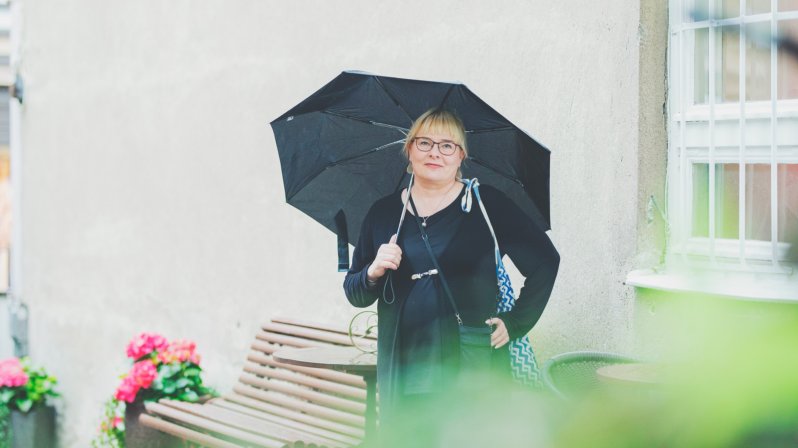“A cleaner is a professional doing important work”
International Justice for Janitors’ Day is celebrated on 15 June. Cleaner Outi Missi sees part-time working and low pay as the biggest problems in Finland.
“Cleaners are still not seen. That’s why Janitors’ Day is needed to remind people that cleaners are professionals with their own careers who do important work.
There are huge labour shortages – more workers are desperately needed in the sector. But pay is low. Company managers don’t seem to be interested in understanding collective agreement rules, and are always coming up with new ways to get round employment terms.
Competitive tendering is tough for us cleaners. You don’t get your own workplace where you are one of a team, and the work sites change every couple of years. Also cleaning is often done early in the morning or in the evening because cleaners mustn’t be seen.
Part-time working is too common in the sector. For some people, part-time working suits their particular situation. But it’s become a problem because you can’t get full-time jobs and part-timers have less rights. This is wrong. People shouldn’t have to work for two or three employers just to get by. It seems they either don’t want, aren’t able or can’t be bothered to organise work so that people get a full-time job. I’m sure if men were doing this work solutions would have been found to the problem long ago.
I’m concerned about cleaners’ ability to cope. They’ve sorted out the occupational safety culture and risk assessments, but no attention is paid to mental wellbeing at work. Cleaners can get burnout too. You’re often working alone, rushing from one place to another. And nowadays all communications are digital, there are no face-to-face meetings any more. I believe cleaners would cope better if they could meet other people, share their experiences and sense that they’re not alone.
I like cleaning work because it’s independent and you can also be creative. The work suits people who are creative and are good with their hands. I became an occupational safety representative and then a shop steward because people were always coming to me and I could see there was a pressing need. I decided to see if I could do it. I found you get a lot out of the role once you’re in.”
Who?
Outi Missi, cleaner
Defends cleaners’ rights as the occupational safety representative and shop steward at her workplace.
Singing as a tenor in a choir is a lifeline. It gives her energy and has helped her through tough times.
As a grandmother she dotes on her grandchildren.
Text:: Hildur Boldt



